20 Simple Daily Habits to Age Gracefully and Stay Vibrant
Aging is a natural part of life, but how we experience it is largely shaped by the choices we make every day. While we can’t turn back the clock, we can adopt habits that help us age with strength, vitality, and confidence. Aging gracefully isn’t about resisting the process—it’s about embracing it with a proactive mindset, prioritizing well-being, and making intentional lifestyle choices that support both body and mind. From maintaining physical health and mental sharpness to fostering emotional resilience and strong social connections, longevity is about balance. Small, consistent changes can have a profound impact, allowing us to not just add years to our lives, but life to our years. We’ve expanded our list to 20 transformative habits that can help you thrive at any age. Whether you’re looking to boost your energy, sharpen your mind, or cultivate a sense of fulfillment, these science-backed strategies will guide you toward a healthier, happier, and more vibrant future.
1. Nourishing Your Body with Balanced Nutrition
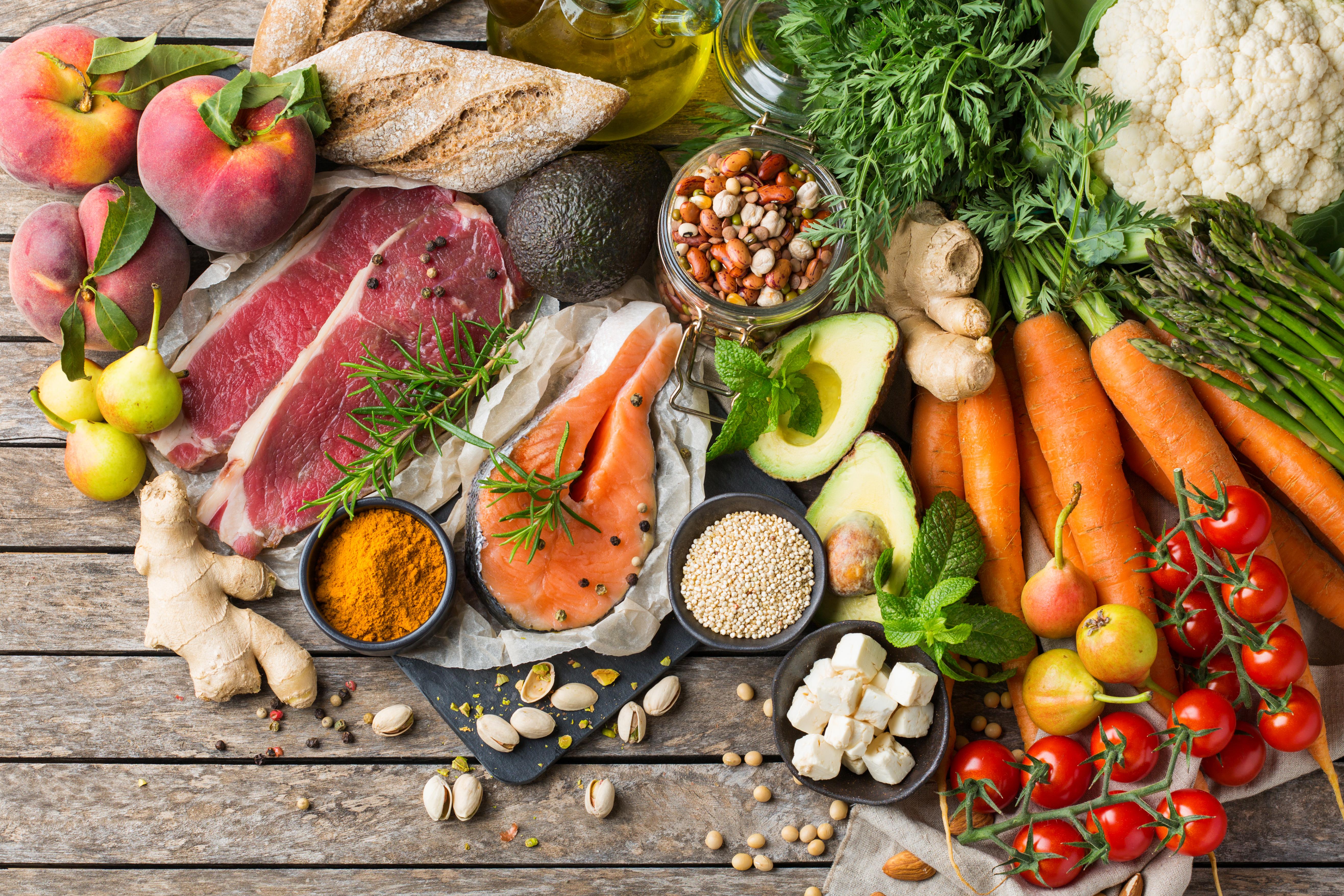
The foundation of graceful aging lies in the fuel we provide our bodies. Nutrition plays a crucial role in maintaining physical health and preventing age-related diseases. A balanced diet rich in fruits, vegetables, whole grains, lean proteins, and healthy fats provides the essential nutrients needed for optimal function. Antioxidants, found abundantly in colorful fruits and vegetables, combat oxidative stress and inflammation, both of which are linked to aging. Omega-3 fatty acids, present in fish and flaxseeds, support heart health and cognitive function, while fiber aids in digestion and metabolic health. Hydration is equally important, as water is vital for cellular processes and detoxification. As we age, our body's ability to signal thirst diminishes, making it essential to consciously consume adequate fluids. Limiting processed foods, sugars, and excessive salt can further protect against chronic diseases such as diabetes and hypertension. Mindful eating, which involves paying full attention to the experience of eating and enjoying food without distractions, can enhance digestion and satisfaction, preventing overeating. By prioritizing balanced nutrition, we lay the groundwork for a robust and resilient body that can withstand the test of time.
2. Staying Active: The Power of Regular Exercise

Physical activity is a cornerstone of vibrant living and graceful aging. Regular exercise not only strengthens muscles and bones but also improves cardiovascular health, flexibility, and balance. Engaging in a mix of aerobic activities, strength training, and flexibility exercises can significantly enhance overall health and reduce the risk of falls, a common concern as we age. Exercise is also a powerful tool for mental health, releasing endorphins that boost mood and alleviate stress, anxiety, and depression. Incorporating movement into daily routines doesn't require a gym membership or intense workouts. Simple activities like walking, gardening, or yoga can be highly effective. Consistency is key, and finding enjoyable activities increases the likelihood of maintaining an exercise regimen. Social activities, such as group classes or community sports, provide the added benefit of social interaction, which is crucial for emotional well-being. By staying active, we not only preserve our physical capabilities but also enhance our mental and emotional health, contributing to a more vibrant life.
3. Cultivating a Positive Mindset

A positive mindset is a powerful ally in the journey of aging gracefully. Our thoughts and attitudes significantly influence our overall well-being and how we perceive the aging process. Embracing a positive outlook can improve mental health, enhance resilience, and even boost the immune system. Practices such as gratitude journaling, positive affirmations, and mindfulness meditation can help cultivate a positive mindset, fostering a sense of contentment and purpose. Gratitude journaling involves regularly writing down things we are thankful for, shifting focus from challenges to blessings. Positive affirmations are statements that reinforce self-belief and confidence, counteracting negative self-talk. Mindfulness meditation encourages living in the present moment, reducing stress and enhancing emotional regulation. By adopting a positive mindset, we empower ourselves to face the challenges of aging with grace and optimism, transforming potential obstacles into opportunities for growth and learning.
4. Prioritizing Restful Sleep

Sleep is an essential component of health and well-being, particularly as we age. Quality sleep is vital for cognitive function, emotional balance, and physical health. It allows the body to repair and regenerate, supporting immune function and reducing the risk of chronic conditions such as obesity, diabetes, and heart disease. Unfortunately, sleep disturbances become more common with age, making it crucial to prioritize restful sleep. Establishing a consistent sleep routine, creating a comfortable sleep environment, and practicing relaxation techniques can enhance sleep quality. Limiting caffeine and screen time before bed, as well as engaging in calming activities like reading or taking a warm bath, can promote relaxation and improve sleep onset. By prioritizing restful sleep, we equip our bodies with the energy and resilience needed to navigate the challenges of daily life, contributing to graceful aging and vibrant living.
5. Engaging in Lifelong Learning

The pursuit of knowledge and new skills is a lifelong journey that keeps the mind sharp and engaged. Engaging in lifelong learning stimulates cognitive function, enhances memory, and fosters creativity. It provides a sense of purpose and achievement, contributing to emotional well-being and personal growth. Learning can take many forms, from formal education and online courses to hobbies and cultural experiences. Reading, puzzles, and brain games are excellent ways to challenge the mind and improve cognitive abilities. Learning a new language, musical instrument, or craft can also be highly rewarding. Social learning opportunities, such as book clubs or workshops, offer the added benefit of social interaction and community engagement. By embracing lifelong learning, we nurture a curious and active mind, enhancing our ability to adapt and thrive in a rapidly changing world.
6. Nurturing Social Connections
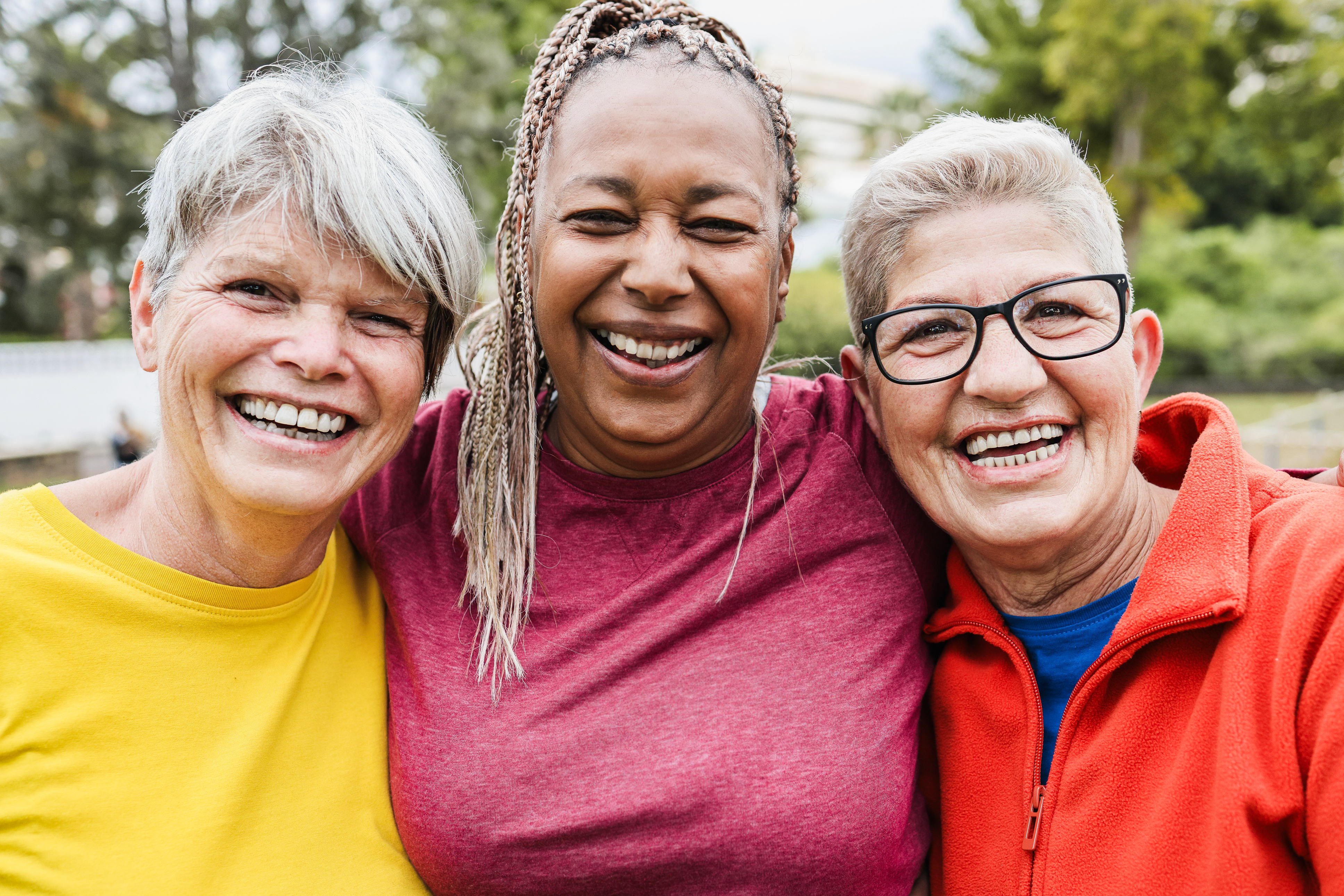
Social connections are vital for emotional health and longevity. Engaging with family, friends, and community provides a sense of belonging and support, reducing feelings of loneliness and isolation. Strong social networks have been linked to improved mental health, reduced stress, and even increased lifespan. Participating in social activities, volunteering, or joining clubs and organizations can enhance social connectivity and provide opportunities for meaningful interactions. Quality relationships are characterized by mutual respect, empathy, and open communication. It's important to nurture these relationships by spending quality time together, actively listening, and offering support. In today's digital age, technology offers additional avenues for connection, allowing us to stay in touch with loved ones regardless of distance. By nurturing social connections, we enrich our lives with love, laughter, and companionship, contributing to a fulfilling and vibrant existence.
7. Practicing Mindfulness and Meditation

Mindfulness and meditation are powerful practices that promote mental clarity, emotional balance, and stress reduction. Mindfulness involves paying attention to the present moment without judgment, while meditation is a focused practice that cultivates awareness and relaxation. Both practices have been shown to improve mental health, enhance emotional regulation, and increase overall well-being. Incorporating mindfulness and meditation into daily routines can be simple and accessible. Short meditation sessions, mindful breathing exercises, or mindful eating practices can be seamlessly integrated into everyday life. These practices encourage us to slow down, appreciate the present, and develop a deeper understanding of ourselves and our surroundings. By practicing mindfulness and meditation, we cultivate inner peace and resilience, empowering us to navigate the complexities of aging with grace and composure.
8. Managing Stress Effectively
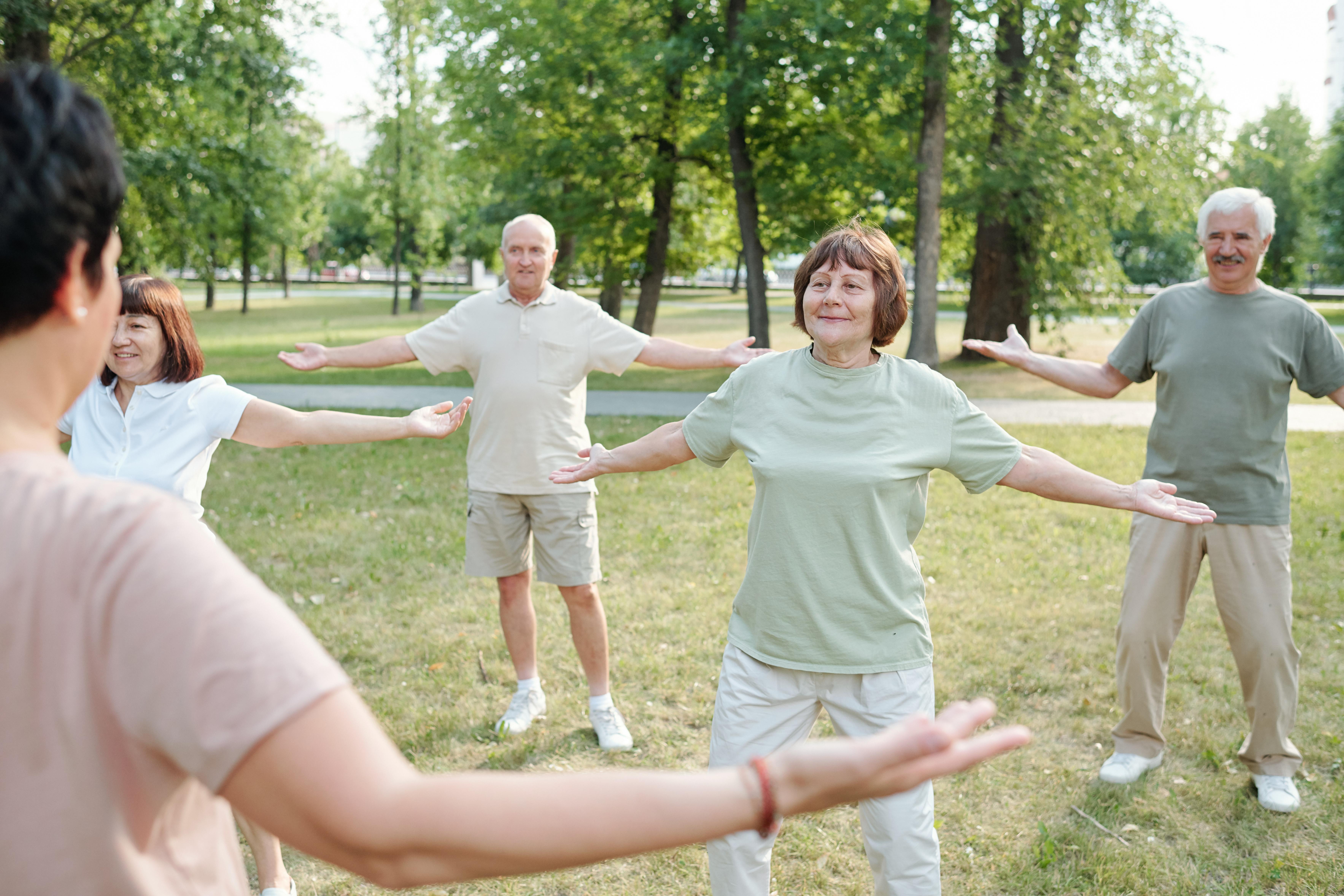
Stress is an inevitable part of life, but chronic stress can have detrimental effects on health and well-being. As we age, managing stress becomes increasingly important to prevent its negative impact on the body and mind. Effective stress management involves identifying stressors, developing coping strategies, and prioritizing self-care. Techniques such as deep breathing, progressive muscle relaxation, and visualization can help alleviate stress and promote relaxation. Regular physical activity, hobbies, and social interactions also contribute to stress reduction. It's essential to set realistic goals, establish boundaries, and practice self-compassion. By managing stress effectively, we protect our health, enhance our quality of life, and promote graceful aging and vibrant living.
9. Embracing Hobbies and Play
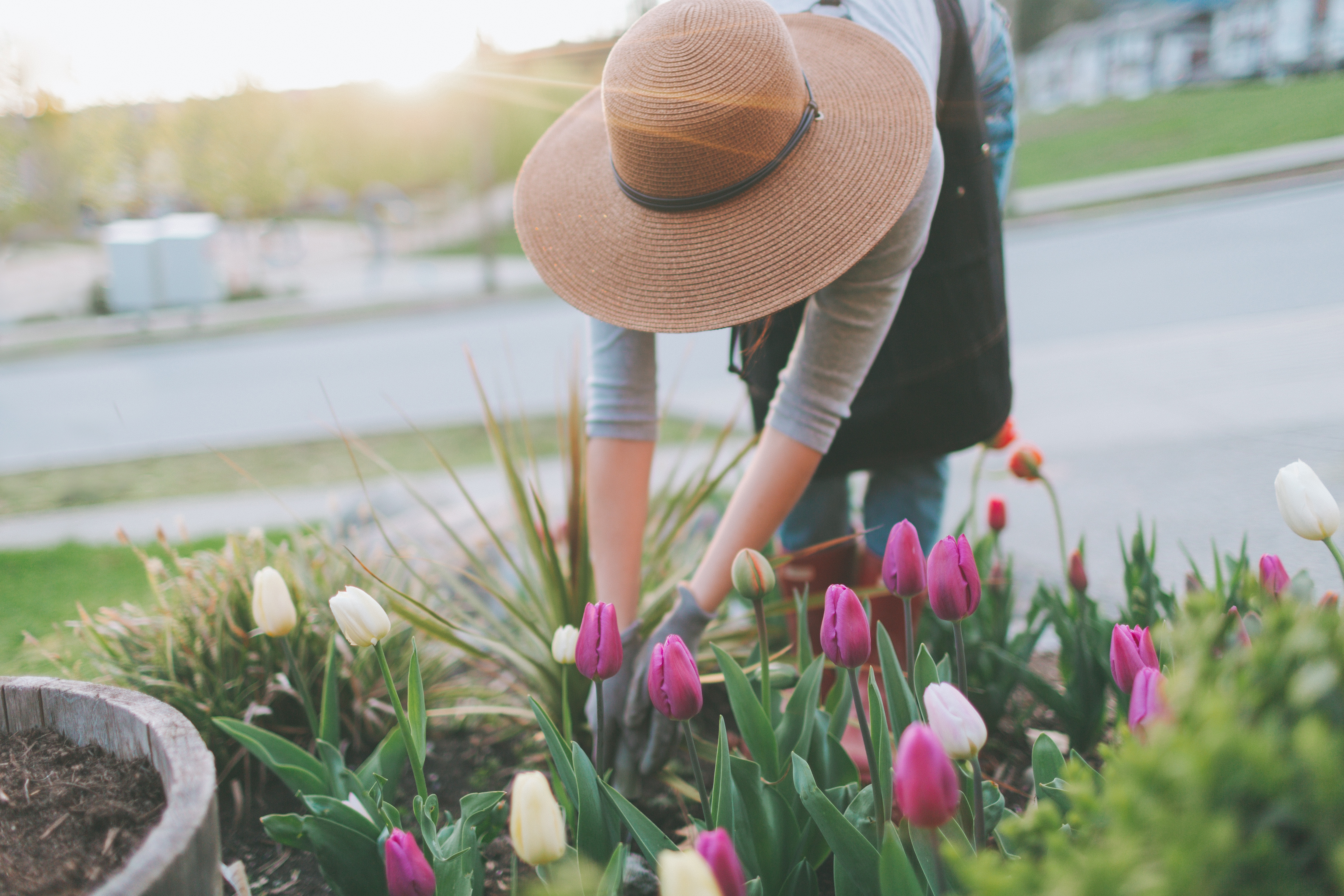
Hobbies are essential to a fulfilling and vibrant life, offering a chance to express oneself, explore new ideas, and find joy in the everyday. Engaging in creative activities like painting, writing, gardening, or crafting stimulates the brain, enhances problem-solving skills, and fosters emotional well-being. Gardening, in particular, is a beautiful blend of creativity and mindfulness, allowing individuals to nurture life while expressing their personal style through plants and landscapes. The act of planting, tending, and watching things grow connects us to nature, reduces stress, and brings a deep sense of accomplishment. Play is just as important, even in adulthood, as it encourages spontaneity and a lighthearted approach to life. Activities such as dancing, board games, or sports promote laughter, relaxation, and social interaction. By embracing creativity and play, we cultivate a sense of wonder, improve our mental health, and create a more enriching aging experience filled with curiosity and joy.
10. Regular Health Check-Ups and Preventive Care

Proactive health management is crucial for maintaining well-being and preventing age-related diseases. Regular health check-ups and preventive care allow for early detection and intervention, reducing the risk of complications. Routine screenings, vaccinations, and health assessments provide valuable insights into our health status and guide necessary lifestyle adjustments. Building a strong relationship with healthcare providers and staying informed about health recommendations are essential components of preventive care. It's important to address any health concerns promptly and adhere to prescribed treatments and lifestyle modifications. By prioritizing regular health check-ups and preventive care, we empower ourselves to take charge of our health, ensuring a longer, healthier, and more vibrant life.
11. Embracing the Outdoors for Physical and Mental Well-being

Spending time outdoors is one of the most enjoyable and beneficial habits for graceful aging. Whether it's a morning walk in the park, a hike in the woods, or simply tending to a garden, immersing yourself in nature provides a wealth of physical and mental health benefits. Fresh air and sunlight boost vitamin D levels, which is essential for bone health, immune function, and mood regulation. Exposure to natural surroundings has also been shown to reduce stress, lower blood pressure, and enhance cognitive function. Beyond the physical perks, spending time outdoors fosters a sense of connection with the world around us. Listening to birdsong, feeling the warmth of the sun, or watching the seasons change can be incredibly grounding. Even in urban areas, finding green spaces or sitting on a balcony can provide similar benefits. By making outdoor time a daily priority, you cultivate a deeper appreciation for life while nurturing your health and well-being.
12. Laughing More Often

Laughter truly is the best medicine, and it plays a crucial role in aging gracefully. Studies show that laughter reduces stress hormones, boosts immunity, and increases endorphins, the body’s natural feel-good chemicals. It also improves circulation and supports heart health. When you laugh, you engage multiple muscles, increasing oxygen flow and giving your body a natural workout. Beyond physical benefits, laughter is an essential part of emotional well-being. It strengthens social bonds, enhances mood, and fosters a positive outlook on life. Whether it’s watching a funny movie, sharing jokes with friends, or recalling amusing memories, laughter lightens your spirit and reminds you not to take life too seriously. Even engaging in playful activities, such as improv games or spending time with children, can bring more laughter into your life. By making laughter a daily habit, you cultivate a joyful and resilient mindset, essential for thriving at any age.
13. Practicing Daily Acts of Kindness

Acts of kindness, no matter how small, have a profound effect on both the giver and receiver. Engaging in daily kindness—whether it's holding the door for someone, writing a thoughtful note, or simply smiling at a stranger—creates a ripple effect of positivity. Scientific research has shown that acts of kindness release oxytocin, the "love hormone," which helps reduce stress, lower blood pressure, and promote heart health. Beyond physical benefits, kindness enhances emotional well-being. It fosters a sense of purpose, strengthens social connections, and reinforces a positive outlook on life. Volunteering, mentoring, or even helping a neighbor can add meaning and fulfillment to daily life. Engaging in random acts of kindness reminds us that aging is not just about maintaining health but also about making the world a better place. By incorporating kindness into your daily routine, you cultivate a life filled with warmth, connection, and gratitude.
14. Creating a Morning Ritual

How you start your day sets the tone for everything that follows. Developing a meaningful morning ritual—whether it’s stretching, journaling, meditating, or enjoying a slow cup of tea—helps create a sense of peace and intention. A structured morning routine enhances focus, reduces stress, and increases productivity throughout the day. A great morning ritual doesn’t have to be complicated. Even simple habits like opening a window to breathe in fresh air, reciting affirmations, or setting a daily goal can make a difference. The key is to create a ritual that feels rewarding and aligns with your personal well-being goals. When mornings are rushed and chaotic, stress levels rise, and energy levels drop. But when mornings are calm and purposeful, you cultivate resilience and clarity. By designing a morning routine that nourishes your body, mind, and soul, you start each day feeling refreshed, focused, and ready to embrace life.
15. Limiting Screen Time and Digital Detoxing
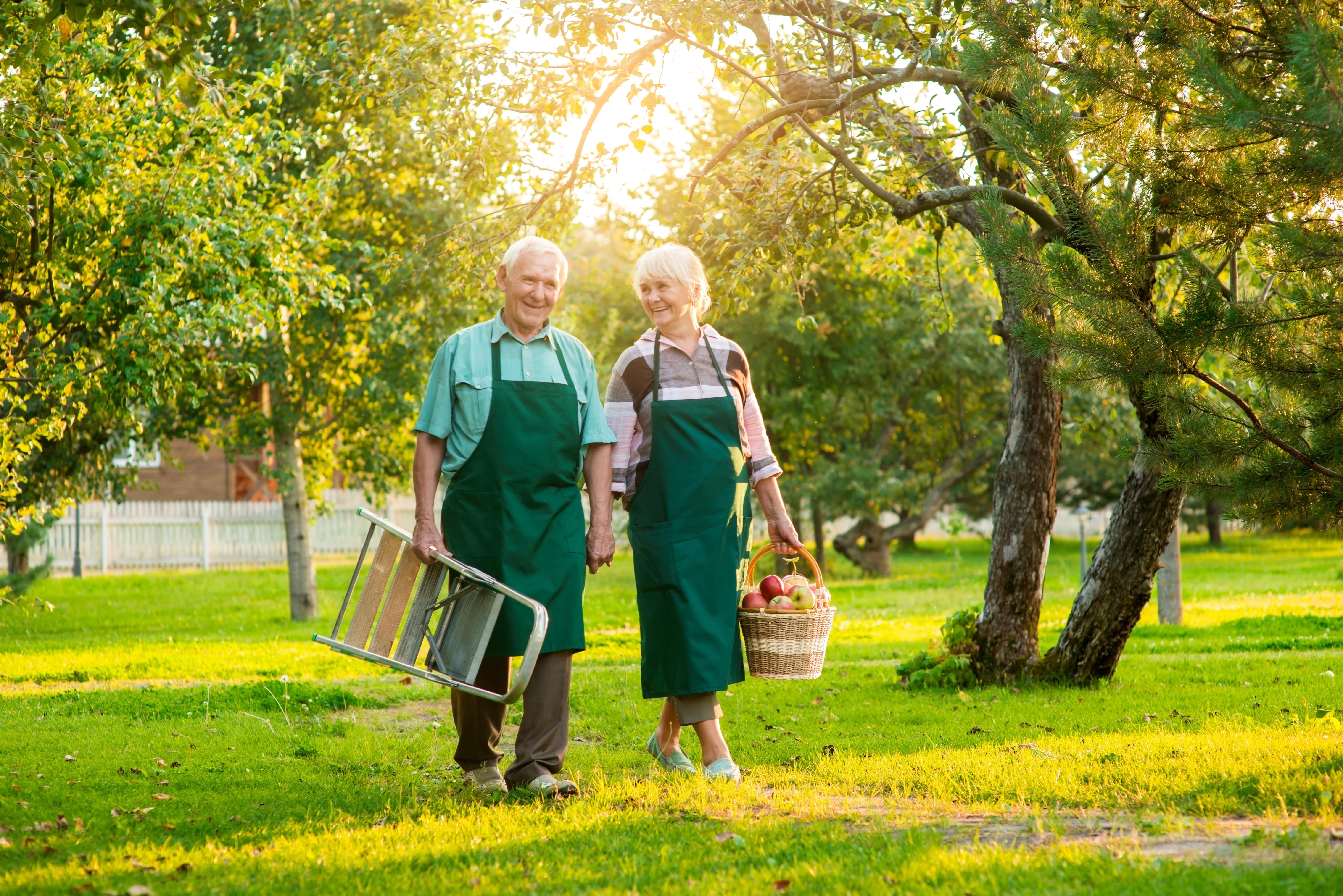
In today’s hyperconnected world, excessive screen time can take a toll on mental, emotional, and physical well-being. Prolonged exposure to screens contributes to eye strain, disrupted sleep, and even increased anxiety and depression. Engaging in regular digital detoxes—where you consciously limit phone, TV, and computer usage—helps create a healthier balance between the online and offline world. Instead of mindlessly scrolling, consider setting boundaries such as no screens an hour before bed or designated "screen-free" zones in your home. Replace excessive digital consumption with fulfilling activities like reading, engaging in hobbies, or spending quality time with loved ones. By reducing digital distractions, you allow yourself to be more present in the moment, improve focus, and enhance real-life connections. Aging gracefully is about nurturing meaningful interactions and being mindful of how technology impacts your well-being.
16. Developing a Sense of Adventure

Aging doesn’t mean slowing down—it means embracing new experiences with enthusiasm. Developing a sense of adventure, no matter how big or small, keeps life exciting and fulfilling. Whether it’s traveling to a new destination, trying a different cuisine, learning to dance, or picking up a daring hobby like paddleboarding, saying "yes" to new experiences expands your horizons. Adventure is not just about physical activities; it’s a mindset. It can be as simple as taking a new route home, visiting a museum, or striking up a conversation with a stranger. Pushing beyond your comfort zone fosters resilience, creativity, and a deep appreciation for life. Every new experience enriches your story and keeps your mind engaged. By making adventure a daily habit, you cultivate curiosity and excitement, proving that every stage of life has opportunities for joy and discovery.
17. Expressing Creativity Daily

Creativity is a key ingredient in a vibrant, fulfilling life. Engaging in creative activities—whether it’s painting, writing, knitting, dancing, or even cooking—helps maintain cognitive function, improve problem-solving skills, and reduce stress. Creativity activates different parts of the brain, keeping it sharp and engaged. Expressing creativity doesn’t require artistic talent—it’s about finding joy in the process. Try doodling, experimenting with a new recipe, or making music. Creativity also extends to problem-solving and innovation in daily life, such as finding new ways to organize your home or making DIY projects. Expressing yourself through creativity boosts self-esteem, cultivates a sense of purpose, and fosters joy. By making creativity part of your routine, you enhance your mental well-being and embrace the fun and freedom of self-expression.
18. Prioritizing Gut Health
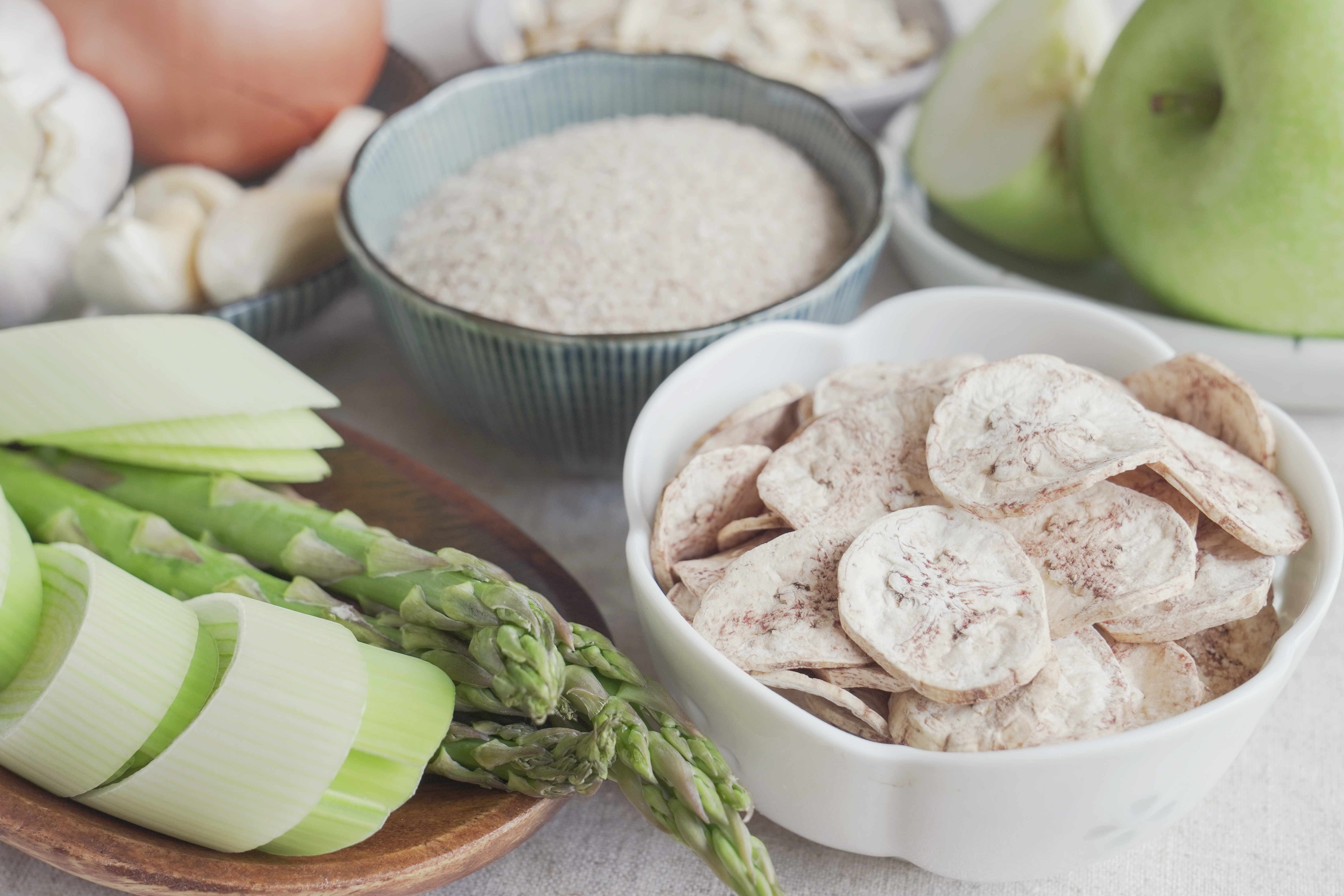
A healthy gut is the foundation of overall well-being. The gut microbiome, composed of trillions of bacteria, plays a crucial role in digestion, immunity, mood regulation, and even brain health. Consuming probiotic-rich foods like yogurt, kefir, kimchi, and sauerkraut, along with fiber-packed fruits and vegetables, promotes a balanced gut environment. Stress, poor diet, and lack of sleep can disrupt gut health, leading to inflammation and weakened immunity. Drinking plenty of water, reducing processed foods, and incorporating fermented foods into your diet can support a thriving gut microbiome. By making gut health a priority, you enhance digestion, boost energy levels, and promote overall vitality, contributing to a healthier aging process.
19. Practicing Deep Breathing and Breathwork
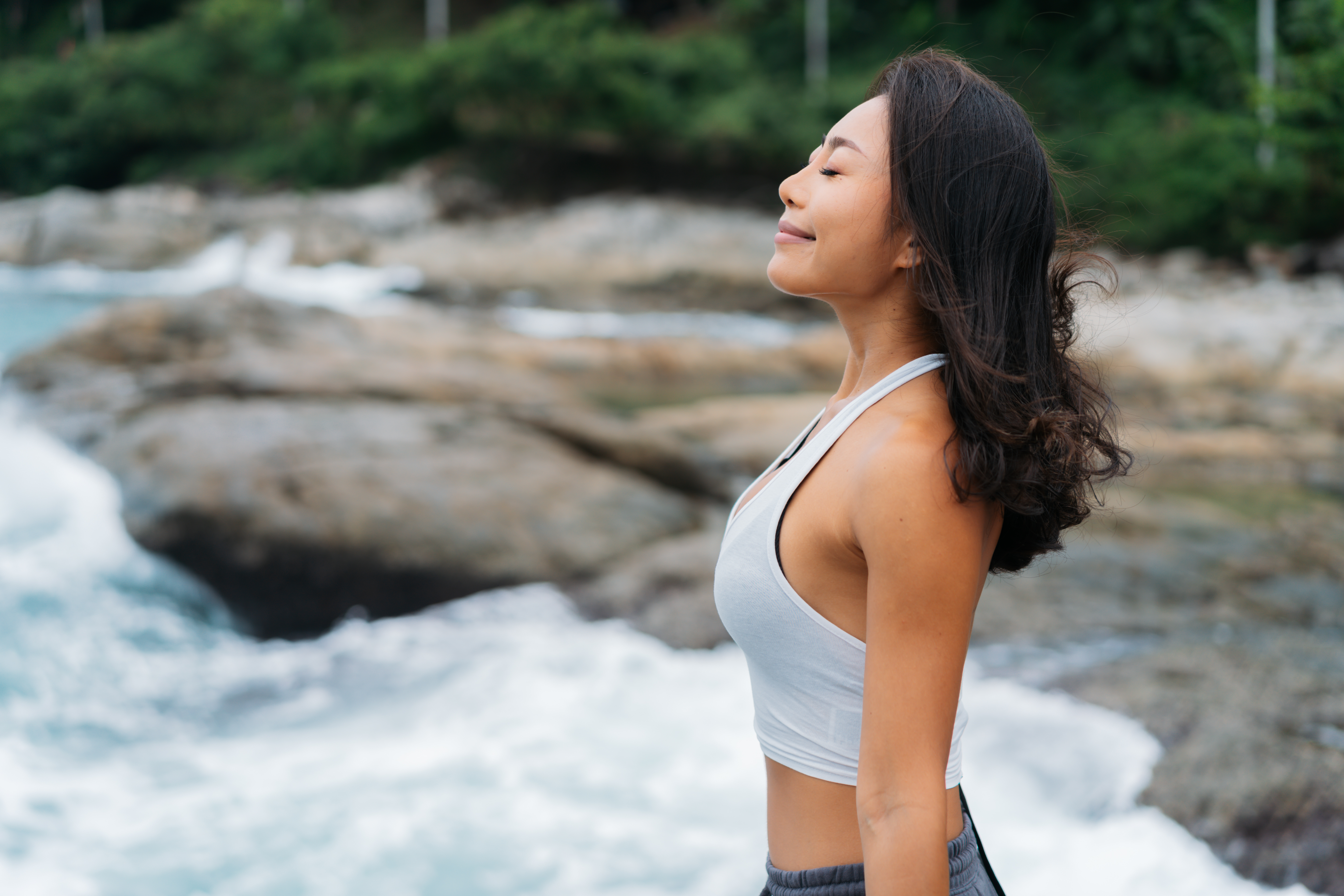
Breathwork is a simple yet powerful habit that enhances mental clarity, reduces stress, and improves overall well-being. Controlled breathing techniques—such as diaphragmatic breathing, box breathing, and alternate nostril breathing—help regulate the nervous system, lower blood pressure, and increase oxygen levels in the body. Taking a few deep breaths during stressful moments or dedicating five minutes a day to conscious breathing can have profound effects on mood and health. Breathwork also improves lung function and cardiovascular health, making it an essential practice for aging gracefully. By incorporating breath awareness into your daily life, you cultivate a sense of calm and resilience.
20. Cultivating Daily Gratitude
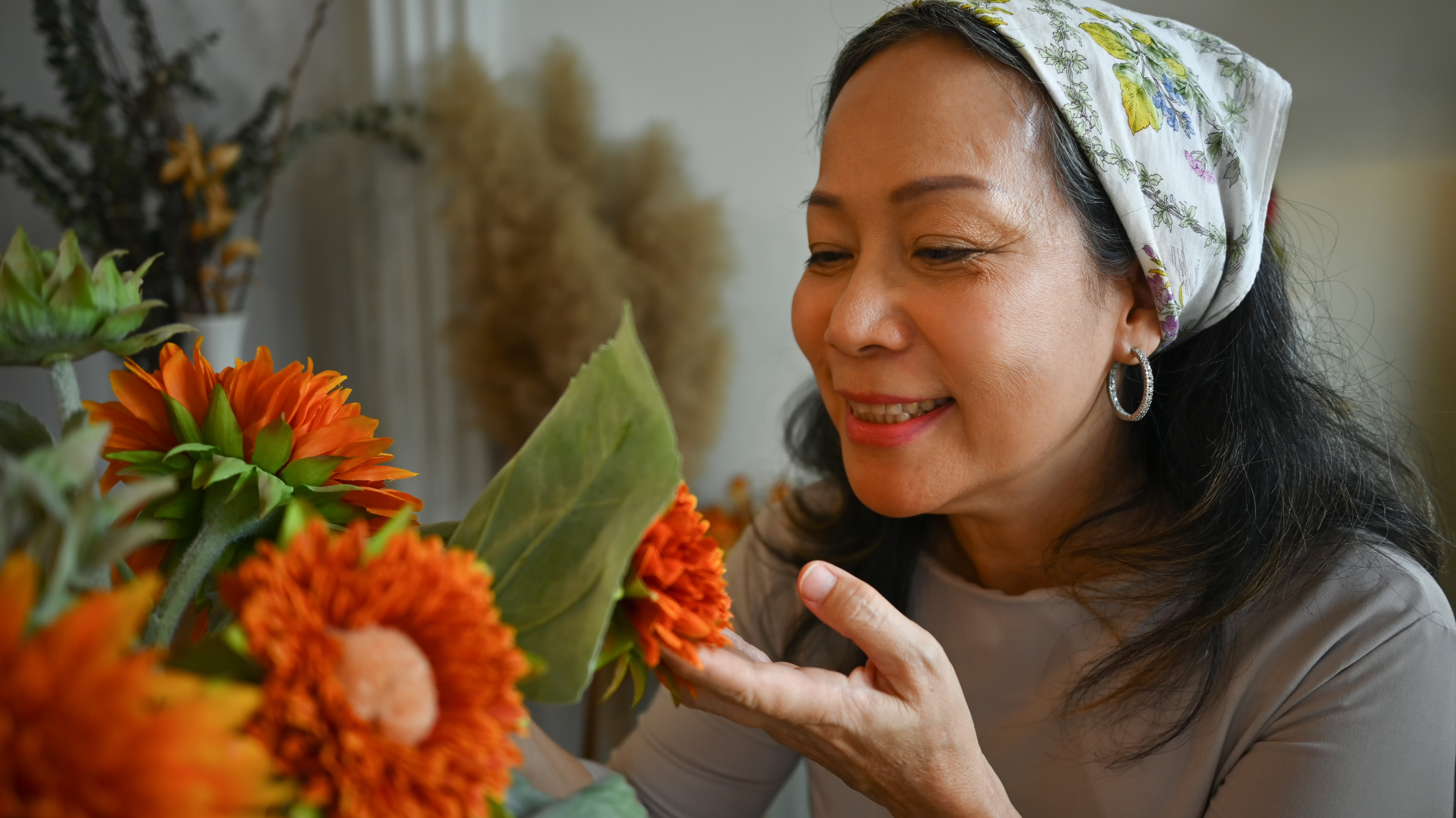
Gratitude is a powerful practice that enhances emotional resilience, reduces stress, and fosters contentment. Taking time each day to reflect on things you’re grateful for—whether it’s a beautiful sunset, a meaningful conversation, or good health—helps shift your perspective towards positivity. Keeping a gratitude journal, expressing appreciation to loved ones, or even acknowledging small joys throughout the day strengthens emotional well-being. Studies show that practicing gratitude improves sleep, lowers depression levels, and enhances overall happiness. By making gratitude a daily habit, you cultivate a mindset that embraces life with optimism and fulfillment, making the aging process a more joyful and enriching experience.
A Holistic Approach to Aging

Embracing these 20 simple daily habits fosters a holistic approach to aging, promoting physical, mental, emotional, and social well-being. Each habit is interconnected, contributing to a balanced and fulfilling life. Aging gracefully is not about defying time but embracing it with wisdom, resilience, and joy. It's about nurturing ourselves and our relationships, staying curious and engaged, and finding beauty in every stage of life. As we incorporate these habits into our daily routines, we embark on a journey of self-discovery and growth, enriching our lives and the lives of those around us. Aging is a privilege, and by embracing it with grace and vibrancy, we create a legacy of health, happiness, and fulfillment for future generations. Let us celebrate the art of aging gracefully, cherishing each moment and living life to the fullest.